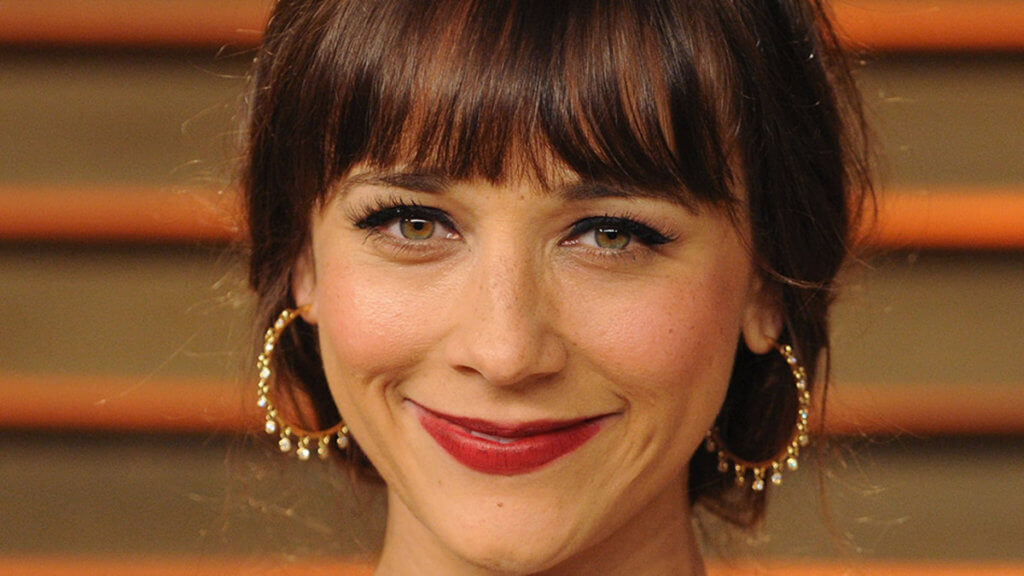There are a lot of people in the SurvivorNet community who have had a parent diagnosed with cancer. Because cancer has such a big impact on family life, figuring out how to be a supportive child of a cancer patient is a major challenge for anyone, however strong.
Actress and comedian Rashida Jones, 43, daughter of actress Peggy Lipton and recording legend Quincy Jones, and partner to Vampire Weekend frontman Ezra Koenig, has had a lot of experience finding her role, amidst her famous mother’s diagnosis.
Read More Actress and comedian Rashida Jones, and daughter of actress Peggy Lipton
Actress and comedian Rashida Jones, and daughter of actress Peggy LiptonWhen Lipton was first diagnosed with stage three colon cancer in 2002, Rashida had to figure out what her role was as a daughter. “I decided my job was to find joyful moments during what could have been a terrifying time for both of us,” she told Oprah.com in a 2018 interview. “We told dumb jokes all day; at one point, I started calling my mom ‘Chemosabe.’ We laughed so much, she almost seemed to forget she was sick. That summer all we did was laugh.”
Lipton was diagnosed with Stage 3 colon cancer in 2002 and the news came right after one of their most special memories as a family. “In 2002 Mom and I got a chance to act together in a play called Pitching to the Star, with her brother, Robert Lipton. The three of us on the same stagethat was such a special experience for me. When the play was over, I went to London for four months. Just a couple of days after I came back, Mom was diagnosed with cancer.”
It was a routine screening that led to the diagnosis. “At 56, she’d gone in for a routine colonoscopy, and her doctors found a Stage 3 tumor. They recommended surgery and chemo immediately.”
With stage three colon cancer, the cancer has spread to the nearby lymph nodes. According to Dr. Paul Oberstein, Medical Oncologist at NYU Perlmutter Cancer Center, that's part of the reason that chemotherapy is so important for Stage 3 colon cancer. "In colon cancer, we now know that if tumor cells have reached the lymph nodes, they may be hiding in other parts of the body, too," says Dr. Oberstein told SurvivorNet. "Although they may be too small to be seen, they can cause the cancer to come back. Because of that risk of recurrence, anyone with a tumor in their lymph nodes is recommended to undergo chemotherapy after surgery."
Dr. Oberstein spoke to SurvivorNet recently about Stage 3 colon cancer in general, not about Peggy Lipton’s case specifically. Every Stage 3 colon cancer is unique and patients can respond very differently to therapies.
In general, chemo for Stage 3 colon cancer lasts three to six months and is a combination of several medications that clinical trials have shown to do the best job of preventing the cancer from coming back. The most common combination is called FOLFOX, which is an acronym for three different medications that are given together: 5-fluorouracil/5-FU, leucovorin and oxaliplatin.
These medications are usually given through an IV which means you'll be hooked to an IV pole in the doctor's office every couple of weeks. There can be side effects to FOLFOX in some people such as low white blood cell count, diarrhea and numbness in the fingers and toes, but this combination is safe for most patients.
Lipton’s chemotherapy was a difficult process, according to Rashida. “Chemotherapy is brutal. The goal is pretty much to kill everything in your body without killing you,” she wrote at the time. “I wished I could have gone through it for her; I wanted to take the burden off her. Then I figured out a way to help.”
Even in the hospital room, she and her mom found enough laughter to sweeten the experience. “One time we were in the hospital’s chemo suite, waiting for her to be called in for the treatment. There are performers in the waiting room to keep the patients entertained, and on this day there was a guitarist who was playing Simon and Garfunkel songs,” she wrote. “He was so earnest, so sweet…and just not good at all. After he left, we laughed so hard. We had that moment of surrender where I thought, ‘This is kind of hilarious. I can’t believe we’re here, but thank God we’re here together.'”
News of the diagnosis took a huge toll, according to Rashida. “The minute the word cancer enters your house, everything changes,” Jones wrote. “I felt like a huge anvil had fallen on me. But I knew that action needed to be takenthere were logistics to handle, and my mother needed support. Luckily, both of us now lived in New York, which was a huge blessing.”
And it’s important to know that finding laughter isn’t the same as acting strong, she says. “Just because a situation is grim doesn’t mean you don’t have every right to smile. It isn’t about ‘being strong’ and pretending everything’s okay; it’s about finding joy where you can. My dad has always said, ‘Approach life with love and not fear.’ It’s such a dynamic way to live.”
There will always be pain, and the part you get to chose is how you handle it, says Rashida. “I know that in life there will be sickness, devastation, disappointments, heartacheit’s a given. What’s not a given is the way you choose to get through it all,” she wrote. “If you look hard enough, you can always find the bright side.”
Learn more about SurvivorNet's rigorous medical review process.


